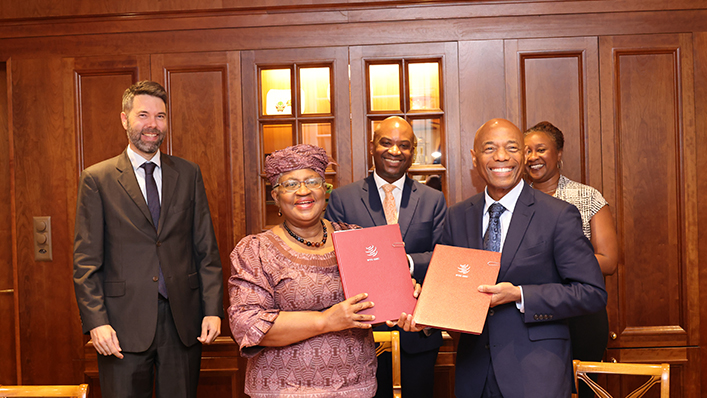
Through the MoU, both organizations agree to collaborate on trade-related technical assistance and trade capacity-building efforts targeted at both Caribbean and non-Caribbean countries.
DG Okonjo-Iweala said: “The MOU aims to deliver specific things for the benefit of countries in the region, virtually all of whom are members of the WTO. So, for instance, as part of a food security package how can we work together to make sure that the Fisheries Subsidies Agreement is implemented. How do we collaborate on capacity building on fisheries management, how do we get countries to deposit their instruments of acceptance [for the Fisheries Subsidies Agreement] as quickly as possible and how do we work together on gender and trade, including collaboration with ITC.”
Dr Leon added: “Building and strengthening the bonds between the two institutions is important to make this very productive engagement work for the benefit of countries and deliver results.”
The two organizations have agreed to cooperate on multiple fronts, ranging from helping WTO members implement the Fisheries Subsidies Agreement to supporting capacity-building on trade statistics and assisting implementation of the WTO’s Trade Facilitation Agreement. Both organizations have also agreed to collaborate on issues such as sanitary and phytosanitary measures and technical barriers to trade, which are critical to small businesses. In addition, they will explore how trade policy can help address climate change and enhance women’s participation in international trade.
The Caribbean Development Bank is a regional financial institution with a total of 28 member countries.
Share
Reach us to explore global export and import deals